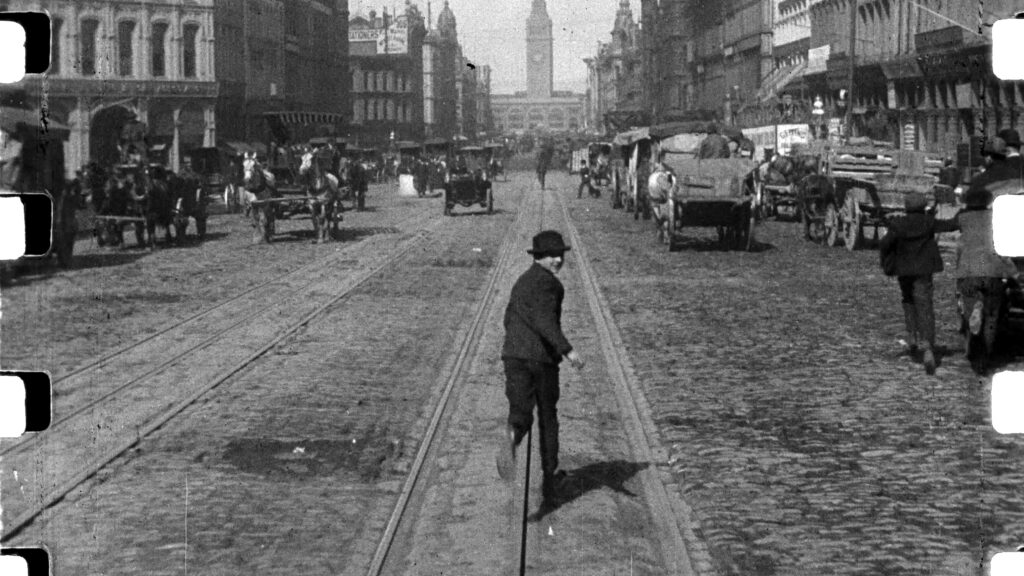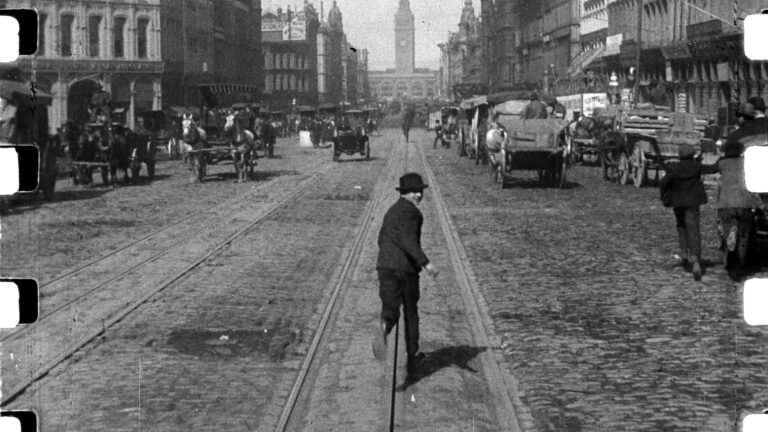Below, we publish a few questions addressed to director Richard Misek about his competition film A History Of The World According To Getty Images.
What kind of work did you do on the archival materials for your film?
I spent about two months during Covid-19 going through Getty Images’ entire online catalogue of editorial video, from the 1890s until the 1950s (at which point the amount of media on their catalogue increases exponentially, and would require a whole team of researchers). As well as looking for specific, historically-significant content for the film, I was also interested in what kind of images were and were not available on Getty’s website. I imagined myself to be a Martian, trying to understand humankind just by the images I was seeing. I made many discoveries (as a Martian), including 1. That the world is about 90% male and 10% female. 2. That everyone in the late 1960s was either fighting a jungle war, protesting against a jungle war, or travelling to the moon, and 3. That people on earth almost never laugh and are generally very unhappy.
In your film there is a strong political as well as cultural motivation towards the use of heritage images. Would you like to tell us more about what it consists of and what changes, in your point of view, are necessary in the management of archival material?
I could spend all day talking about this, but in short… I believe that all images that are in the public domain should be made publicly available wherever possible. Ideally there would be laws that ensure this, but that will never happen. In lieu, I’m very hopeful about Article 17 of the EU’s Digital Services Act, which offers a way for public archives to make ‘out of commerce’ content publicly available; so far, however, only the Bundesarchiv has actively made use of this provision – I would like to see every public archive in Europe commit to using this tool to radically widen public access to their collections. As for commercial archives like Getty – I understand that they have a profit-driven bottom line, but I think they still need to do at least SOMETHING to acknowledge that their huge historical collections have cultural value as well as economic value, and that they are just custodians of these images. Maybe the commercial archive sector could, for example, esatablish a clear ethical framework for private companies managing historic archives. Currently, commercial archives can do what they like with their collections – even destroy them if they cost too much to store (I know of at least one collection that has recently disappered, presumed destroyed, because it had no economic value to its owner). Maybe as well as humans having rights over images (e.g. copyright, moral rights), images themselves could have rights…
Would you suggest to young people a few titles of found footage and/or experimental films that are pivotal for you?
Many films and film-makers. Here’s just a few: Grizzly Man, The Atomic Cafe, The Clock, anything by Peter Tscherkassky, Hollis Frampton, and Janet Cardiff and George Bures Miller. Also, anything by Charlie Shackleton, Chloé Gallibert-Lainé and Maryam Tafakory. My greatest recent inspiration has been Radu Jude, who with every new film finds a new way of engaging with archive images. He’s really inspiring to listen to in person too!

